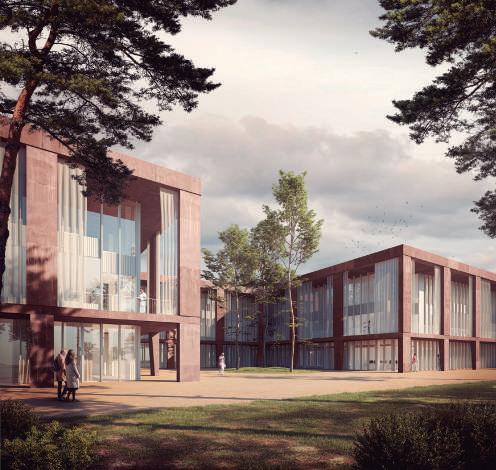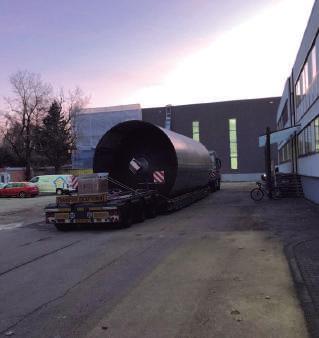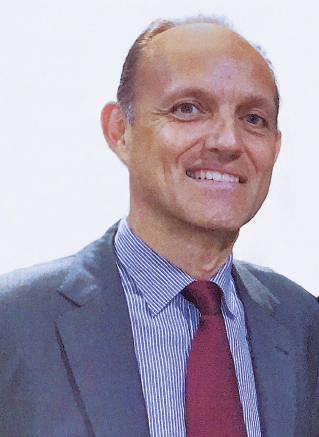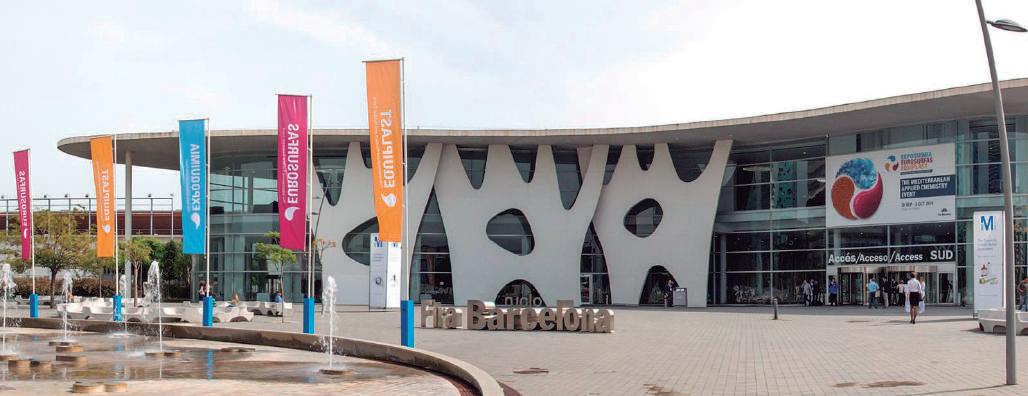
4 minute read
encounters
Networking for progress in bio-process analytics
What do beer, many vaccines or treated wastewater have in common? Biotechnological processes are involved in the production of all these substances and must be monitored and controlled so that they can work optimally. For this purpose, it is necessary to analyze the processes very precisely and preferably gapless and in real time. It is the goal of the Bio-PAT network to further develop the necessary process analytical technologies (PAT) specifically for bioprocesses.
lmost 50 users and interested parties accepted the invitation of the Berlin-based Bio-PAT cooperation network to a workshop meeting on December 4, 2019 at the premises of Knauer Wissenschaftliche Geräte GmbH. “Current developments in PAT and soft sensor technologies” was the title of the event. A
The event started at 12:30 pm with an introduction to the BioPAT network and the company Knauer, followed by a guided tour of the premises, during which the workshop participants
Managing Director Dr.-Ing. Anika Bockisch and CEO Prof. Dr. Peter Neubauer from the Bio-PAT e.V. cooperation network were invited to the workshop
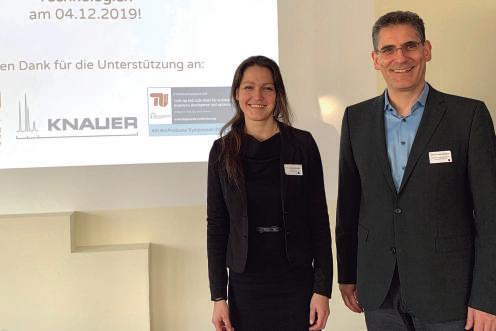
Managing Director Alexandra Knauer from host Knauer Wissenschaftliche Geräte GmbH opened the event
were able to get an impression of the high-precision production of parts, the modern assembly of equipment and the laboratory of the hosting company Knauer and already got into conversation. Some visitors found it very remarkable that a medium-sized company like Knauer has such a high vertical range of manufacture – the laboratory measuring instruments are almost completely manufactured in Berlin.
In the following part, members of the network gave exciting lectures on the measurement technology areas of chromatography systems, sensors for gas analysis, ion-selective electrodes, in
Around 50 listeners followed the process analytics lectures

situ optical systems such as image analysis of microscopic data and photon density wave spectroscopy and their significance for process analysis. In addition, the lecture series was both introduced and concluded by contributions on chemometrics, interpretation and utilization of complex analysis data.
“Liquid chromatography is our passion and core competence. Because chromatography plays an important role in process analysis, we are of course also a member of the network. We see this as an opportunity to exchange ideas with the many users and to contribute our expertise,” said Alexandra Knauer. She is Managing Director of Knauer.
One topic that was discussed in several contributions was the so-called soft sensor technology. This is a kind of virtual sensor for a measurand that is difficult or impossible to access directly. With the help of more easily determinable or even measurable variables, which are correlated via models with difficult-to-access variables, the difficult-to-access measured value can be indirectly determined using an algorithm. Bioprocesses are often complex and can therefore benefit from intelligently combined sensors.
The lectures provided the framework for the lively discussions and the intensive exchange of ideas among the participants. The discussions lasted into the evening.
“Our association would like to bring users, researchers and technology providers in the field of bioprocess analytics into conversation. This has been a wonderful success today! I believe that this day is very helpful for the initiation of new cooperation. I am very satisfied,” said network manager and managing director of Bio-PAT e.V. Dr.-Ing. Anika Bockisch after the event.
The Bio-PAT cooperation network aims to establish cooperation between small and medium-sized enterprises (SMEs), research institutions, universities and industry in order to strengthen the market position and innovative power of SMEs and increase the visibility of their members. Through the targeted bundling of competencies from the fields of sensor technology & bioprocess monitoring, reactor design, microelectronics as well as IT and software development, new process analytical technologies for bioprocesses are to be developed in order to open up new markets and accelerate their market launch.
The Bio-PAT network for SMEs and research institutions in the Berlin-Brandenburg region, 75% of which is funded by the federal government and the state of Berlin, was founded by the Department of Bioprocess Engineering (FG BVT) at the Technical University of Berlin and currently has 20 members. In addition to academic members such as the University of Potsdam (Institute for Chemistry, Physical Chemistry), the Beuth Hochschule für Technik (Department of Bioprocess Technology), the Technische Universität Berlin (FG BVT), the Leibniz-Institut für Agrartechnik und Bioökonomie e.V. or the Versuchs- und Lehranstalt für Brauerei in Berlin (VLB) e.V. (Institute for Biotechnology and Water) are also various SME founding members. More information about the Bio-PAT e.V. can be found at www.bio-pat.org. There is also a short video on the web: https://www.youtube.com/watch?v=tXs4GopQHCs
Knauer
Knauer, a family-owned company, has been developing hightech laboratory instruments such as analytical and preparative HPLC for 57 years. These instruments are sold in more than 70 countries. Knauer has also been a member of the Bio-PAT network since July 1, 2019. The company is ISO 9001 certified with strict manufacturing and process reliability for high quality “Made in Germany”. Alexandra Knauer, the second-generation manager of the company, attaches great importance to corporate responsibility both towards employees and towards the environment and society.
www.knauer.net
(Véase anuncio en la sección Guía del Comprador.)
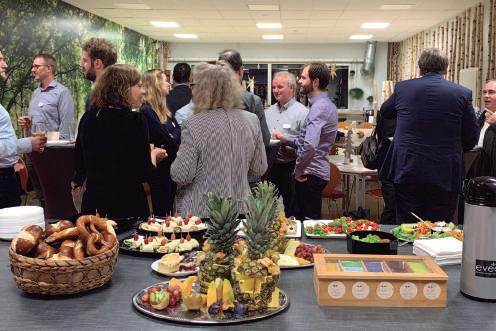
The basic idea of networking was deepened with good catering at the get-together in the evening

